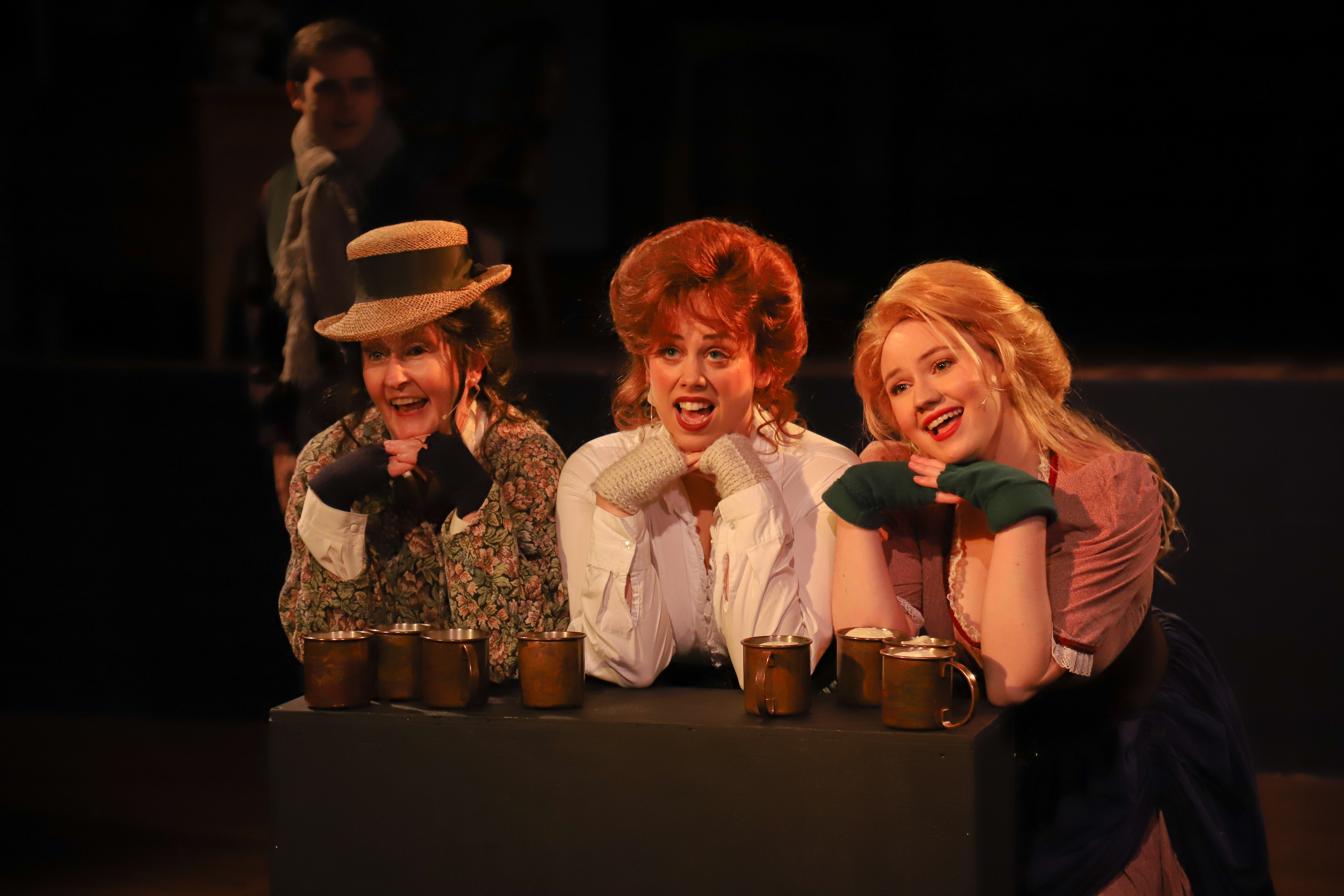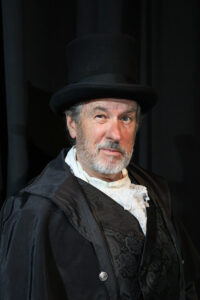
Does My Fair Lady have a place in the post #MeToo movement culture? Eliza Doolittle, the street urchin transformed under the tutelage of a male professor, goes through intentional character development, but were her actions driven by self empowerment or misogynistic expectations?
The “Cinderella story” style trope is a staple in storytelling, but My Fair Lady is a story of a woman deciding to put in the work to improve her life. A romantic relationship wasn’t the intended final goal. She fights to have the men around her acknowledge her achievements and she understands her own worth. Her relationships are an important aspect of the story, but they are not the main event.
The Sonoma Arts Live production, directed by Michael Ross, runs July 12- 28.
Eliza Doolittle, played here by Sarah Wintermayer, has been immortalized as an important strong female character on stage and screen. She is set apart by her main motivation: self improvement. Her romantic endeavors are essentially a side story.
This show has become a superb conversation starter for sometimes difficult topics of sexism and classism in society. Though expectations for women and the upper class have become less rigid, there is still a very public social battle for women to be able to express themselves without fear of discrimination or oppression. Her fluid relationship with social class is a commentary on the construct of class, and how it can be disrupted by even just a few lessons.
Eliza’s success in voice lessons lead her to better opportunities, which is parallel to the professional standard many are faced with on a day-to-day basis. “Foreign” sounding names, ethnic hair, visible tattoos, even open toed shoes are used as excuses to separate the “professional” from the “unprofessional,” despite all being superficial qualities. Before learning how to speak differently, Eliza Doolittle wasn’t taken seriously by those around her. After working hard on her speech she was able to gain more opportunities for herself.
The coming-of-age story of Eliza Doolittle is universal – a young girl who fights to transform her life against the odds she was born with. She is someone to root for, a strong woman who finds her worth, with a few songs in between. Her standout character strength is what inspired Sonoma Arts Live to bring the show to life. My Fair Lady first hit the stage in 1956, and continues to spark wonder, imagination, and passion for generations of even casual theater-goers.
Jaime Love, the company’s Executive Artistic Director, appreciates the longevity of the show. “I hope everyone has memories of where they were when they first heard the songs.” She hopes that older generations share the story with newer ones, and bring in all ages to see the performances. My Fair Lady is ideal for introductions to theater, while also existing as a beloved classic. Love mentioned that one thing she loves about theater is that “it is ageless,” and My Fair Lady has stood the test of time to prove it. The story is captivating – it serves the purpose of an escape while still being able to ignite dialogue.
Sonoma Arts Live closes its Toast to the Classics season with the show. The finale has a small cast taking on a massive legacy, but the Sonoma Community Center offers a unique and intimate setting for a larger-than-life performance. Love said the company has “distilled the story down to its essence” to tailor it to the Andrews Hall space.
Parts of the show takes place with cast members on the ground moving through the audience; three-sided seating in the once auditorium makes this element possible. The audience will feel like they are walking the streets of London. Love proudly says Sonoma Arts Live is “keeping theater alive in this beautiful 105-year-old building… the Community Center experience is a secret gold mine of art-filled evenings.” Live theater is an enriching and vibrant experience, and Sonoma Arts Live does it right.
My Fair Lady was written for and about a world different than modern times, but still is able to offer life lessons and entertainment for people of all ages. Sonoma Arts Live’s season opened with Hello Dolly, another musical with a strong female lead. Love noted that it only felt right closing with this show after opening with such an iconic female-focused show. “My Fair Lady felt right in order to round out the season in a lighthearted but empowering way.” A feel good romance and an iconic soundtrack is appetizing enough, but My Fair Lady has a lot more to offer than meets the eye.
Close up and personal theater, with famous melodies and characters played by talented community members, Sonoma Arts Live has created a lively evening for anyone searching for it. Although Sonoma’s tourist season is in full swing, this event is put on for and by Sonoma natives. It is definitely worth checking out this July.
My Fair Lady runs July 12-28. Evening performances at 7:30 p.m. and Sunday performances at 2 p.m. Sonomaartslive.org.
— By Lauren Smith
Stage photos: Eric Chazankin
Cover photo: Dirk Busby






Be First to Comment